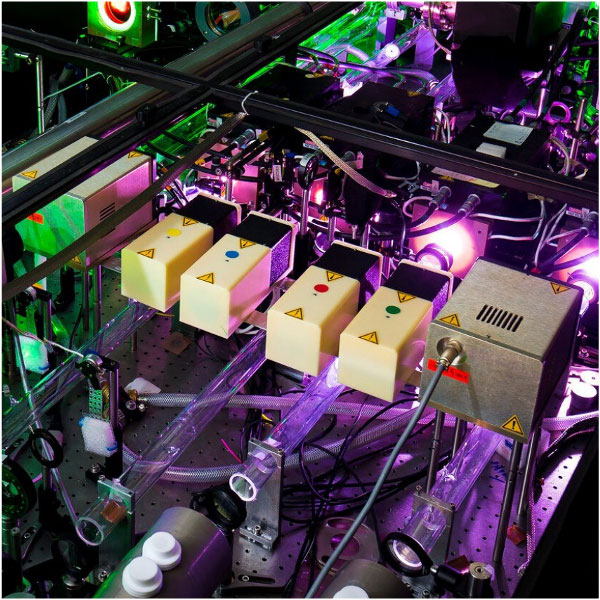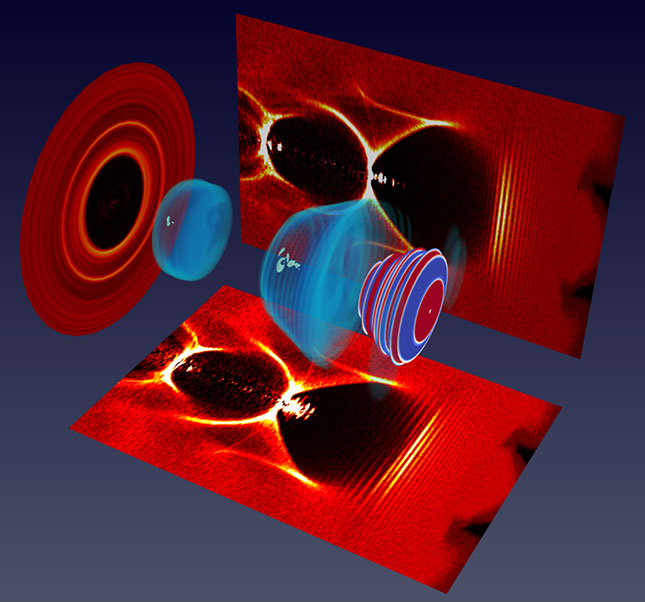Undergraduate Education
Undergraduate Research Opportunities

ZEUS & Plasma Physics (ZaPP) Summer Undergrad Research Program
*Summer 2024 Application Open
The ZEUS and Plasma Physics (ZaPP) Summer Undergraduate Research Program is designed for undergraduate students seeking a research experience focused on plasma physics outside their home institution.
2024 Summer Internship Dates: May 27 – August 2, 2024
During a summer at the University of Michigan, students will conduct an intensive research project in a MIPSE and/or ZEUS affiliated lab and immerse themselves in a specific research project under the direct supervision of faculty and members of the host laboratory. Throughout the summer, all students will engage in a series of academic, professional, and personal development seminars. At the end of the 10-week project, students participate in a research symposium, as well as create and present a poster highlighting the research conducted during the summer.
Eligible Applicants Must:
- Be full-time college student at a U.S. college or university
- Have completed at least two semesters
- Have a minimum GPA of 3.0
- Devote 10 consecutive weeks to full-time laboratory research
Participants receive a stipend of $6500 for the summer plus room and board (with a roommate) in one of our residence halls. Participants will also receive reimbursement for eligible travel expenses (up to $500) for travel to and from Ann Arbor.
Summer 2024 applications will open on December 1, 2023
Application deadline: Friday, February 2, 2024
We actively welcome and hold the majority of our spots for students from undergraduate-oriented and community college settings where graduate level research experiences do not exist, and for students from other under-resourced settings.
Questions? Please contact Elizabeth Oxford, ZEUS Outreach Coordinator, oxforda@umich.edu.
COE Summer Undergraduate Research in Engineering (SURE)
More information coming soon.
Summer Schools

Plasma-Based Acceleration (USPAS)
This is an introductory course on plasma-based acceleration, including laser wakefield and plasma wakefield acceleration. The course will introduce students to the physics of how lasers and charged particle beams propagate through plasmas, how they excite plasma wave wakefields, and how particles are loaded into and are accelerated in these wakefields. The nomenclature of the subject will be introduced and why this topic is currently of great interest will be explained. This course is suitable for graduate students or upper division undergraduate students with an interest in this promising multi-disciplinary field. The course is also appropriate for physicists or engineers working in accelerator-related fields who wish to familiarize themselves with plasma-based accelerator concepts.
High Energy Density Summer School (HEDSS)
This course provides an in-depth introduction to the field. The lectures will be based primarily on the book on high-energy-density physics authored by Prof. R.Paul Drake. See the HEDSS website
Image: “Simulation of a Laser-Wakefield Accelerator.” Credit: Daniel Seipt
Related Programs

City of Light NSF REU (Research Experience for Undergraduates)
The Optics in the City of Light Research Experience for Undergraduates (REU) typically offers 8 undergraduate junior level students the opportunity to spend 2 months in a variety of laboratories in Paris performing research with a wide range of ultrafast lasers. Optics, especially the new discoveries in Extreme Light, is one of the most exciting areas of science. Students will spend one week in Ann Arbor at GM-CUOS for orientation, safety training, preparation for living in France, and immersion into the Ann Arbor laboratories of the REU faculty. Students will also learn basic lab skills as well as basic reporting skills. Students will begin the weekly reporting process that involves preparing a summary and analysis of the previous week’s work. Each student will also prepare a short presentation describing what they think they will be doing for their research in France. These presentations will be sent to the faculty involved in each project. In addition, each student will maintain an electronic notebook (a blog) that all team members will be able to access.

 MENU
MENU 
